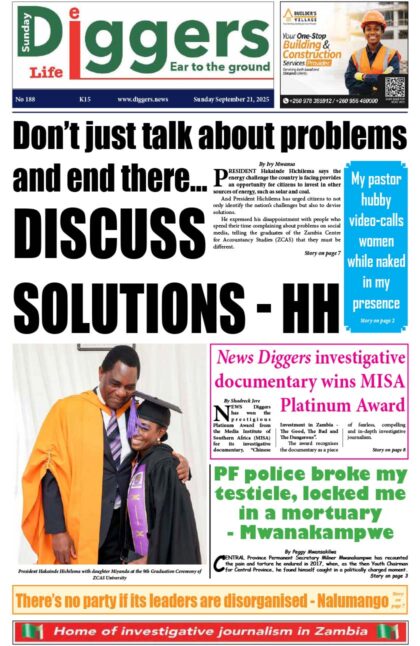The government whole or partially owns State Owned Enterprises (SOEs) and is therefore responsible for the financial liabilities of these companies. If allowed to escalate, the financial challenges of SOEs will further worsen Zambia’s debt position, and will impact Zambians through increased prices and fees. The 2019 budget shows that only 17 out of 45 SOEs were profitable and out of the 17, only 8 declared dividends. According to the International Monetary Fund (IMF), publicly guaranteed debt for ZESCO and ZAMTEL alone stood at US$771 million (3.5 percent of GDP) in 2017, almost six times the amount at the end of 2012. It is thereby imperative that bold decisions are taken on the future of SOEs as struggling parastatals are a drain on the national treasury.
After CUTS demonstrated the impact of proposed electricity tariff increases on the poor, we applaud government’s decision to address ZESCO’s financial viability by freezing wages and restructuring operations instead. More tough decisions are needed at ZESCO and on SOEs across the board to help address Zambia’s debt problem. This article focuses on the need to put ZESCO as a SOE on a better financial footing in order to deal with the public debt situation.
Earlier this year in March, ZESCO proposed a tariff hike and one of the reasons attributed to this was the country’s high public debt levels. The average variable tariff increase between 2017 and 2019, if the proposed 2019 changes were implemented, would have been more than 200%. CUTS conducted an analysis on the implications of this proposal and it is estimated that poverty would have increased by more than 1% of the current national headcount rate, which translates to over 150,000 people falling into poverty. This tariff proposal was however, suspended by the President, His Excellency Edgar Chagwa Lungu, which was a welcome move to prevent an increase in the cost of living and doing business in the country. It is right that Zambian citizens shouldn’t bear the brunt of ZESCO’s financial mismanagement.
ZESCO needs to improve its financial sustainability to avoid increasing Zambia’s debt burden. ZESCO has arrears of at least $500 million dollars and if it is unable to pay its debt it would become the obligation of the government and Zambian citizens will feel the implications of the accumulated debt. Following the energy deficit, ZESCO has to increase imports of energy to address low capacity in Kariba dam. Moreover, suppliers account for the risk of non-payment by increasing the cost of energy supplied to ZESCO. It is thereby, important to address its financial viability to increase confidence in suppliers to reduce costs and conserve foreign exchange.
For a while now stakeholders including CUTS have advocated for ZESCO to undertake various reforms to allow it to operate more efficiently and improve its financial viability. Some of these reforms include firstly, to cut down operational costs, the need to restructure staffing of ZESCO as the institutions wage bill forms a significant portion of the costs of its operating costs. In the last cost of service study undertaken on the institution in 2007, it was revealed that the institutions wage bill accounted for 50% of its operating costs. We therefore, welcome the Industrial Development Cooperation’s (IDC) demand for ZESCO to suspend the employment of new staff.
Secondly, some functions of the institution can be unbundled, such as: transmission, generation and distribution to reduce the burden the company has in running all three operations. This is another demand we welcome by the IDC which indicated that ZESCO should re-examine its strategies, operations and structures, in order to identify and implement measures to make the company more viable.
Lastly, there is need for procurement reforms to ensure value for money for various projects. According to an analysis conducted by the Chamber of Mines on power procurement in 2018, the average price of imported emergency power was 62.5 percent above the global benchmark cost of generation. Procurement reforms will therefore, promote efficiency in ZESCO’s procurement system which would improve financial expenditure management.
The move to migrate to cost reflective tariffs is imperative as long as it is done transparently and in line with the long awaited cost of service study. This will ensure that the true cost of producing electricity is known and that consumers are not subsidizing inefficiencies of ZESCO.
ZESCO needs to urgently work on running more efficiently to avoid having to continuously increase electricity tariffs or accumulate more debt in order to raise capital for its operations. Escalation of the problem is likely to lead to ZESCO hiking tariffs which will increase the cost of living for Zambians and push more people into poverty.
It is important that Zambia’s debt problem is addressed. SOEs need to be financially viable to prevent further accumulating public debt. The Government needs to urgently undertake genuine austerity measures and set an example to SOEs that this is not business as usual. For example, by abandoning proposals for the reintroduction of deputy ministers which is set to increase the public wage bill in a period of austerity. Zambia needs urgent public finance reforms to address the management of debt and increase investor confidence, especially as the country moves to refinance its debt.
























